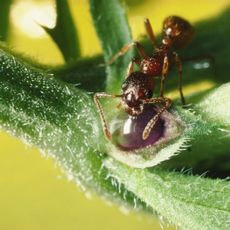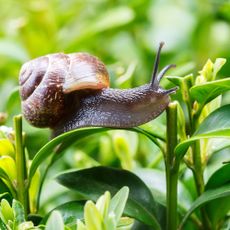Unique Succulents To Add To Your Collection


There are over 10,000 types of succulents in the world. They grow on every continent except Antarctica. They are a wildly diverse group of plants in form, color, and size. Plant collectors are always looking for unique succulent plants, and some of these can be found in this article.
There are tropical, desert, and mountainous varieties of succulent. They may be found in meadows, arid zones, rain forests, and almost any other environment. Many of the most unusual succulents are endangered due to human activities and habitat loss. When sourcing unusual succulent plants, always ensure the seller is reputable and the plant has been sourced legally.
Cactus Succulents
Desert environments are thought to be harsh and inhospitable places, nearly devoid of life. But in fact, deserts support a wide variety of flora and fauna, which are all integral to each other and support the circle of life. Cacti are widely represented in desert regions, coming in sizes as small as a pebble up to forms that would dwarf a giraffe.
The Pincushion cactus is in the genus Mammillaria, a wide group of mostly barrel cactus in all sizes. The pincushion boasts bright pink blooms circling around the spines. Not all cacti produce talon-like spines. The Whortleberry cactus is almost devoid of spines except for tiny soft clusters. It has blue green skin and wrinkled, crested growth. The Brain cactus is a small plant with nodes and folds in its body. The closely nestled folds truly do resemble a brain.
Candle cactus is a large columnar plant composed of numerous arms covered in knobby protrusions. Grandfather cactus is particularly charming. It is adorned with long white, hair-like spines. It is also sometimes called bunny cactus due to the soft looking fur.
Soft Bodied Succulents
The smooth skin of many succulents makes them easy to repot and grow. Lithops come in many sizes and colors. They look much like a stone with a split top and are also called living stones. They grow in hues of pink, blue-gray, gray, greenish gray, coral, red, and even lime green. The Burro’s Tail Sedum is a hanging plant with neatly stacked oval, fleshy leaves. String of Pearls is also a hanging plant with pea-like appendages on the stems.
Ghost plant is in the genus Graptopetalum, and has a powdery coating on the waxy leaves. It is a draping form which produces starry white blooms marked with a red stripe. The Carrion flower may not be a plant for the indoors as it emits a strong, unpleasant odor. It is also called Carrion cactus but is not a true cactus. Instead, it is a succulent member of the milkweed family.
Gardening tips, videos, info and more delivered right to your inbox!
Sign up for the Gardening Know How newsletter today and receive a free download of our most popular eBook "How to Grow Delicious Tomatoes."
How to Find Unusual Succulents
Unusual succulents can often be found at your local nursery or garden center. Because many of these plants hybridize easily, they are often bred to encourage certain strange traits. Cacti are also grafted to create diverse and bizarre forms.
Most succulents are easy to propagate from stem cuttings or leaves. Collectors find the exotic and unusual at shows hosted by groups like cactus or succulent societies. There are also sun shops, or those that only carry succulents. The proprietors are usually succulent enthusiasts with an eye for the unusual.
Succulent seeds can be purchased, with many rare species available. Mature size will take much longer than a plant established through a cutting, but the wait is worth it.
A List of Unusual Succulent Plants
- Desert Rose
- Ponytail Palm
- Haworthia truncata
- Euphorbia obesa
- Crassula Red Pagoda
- Mangave Praying Hands
- Cereus forbesii Spiralis
- African Hosta
- Albuca spiralis
- Buddah’s Temple
- Echeveria Swan Lake
- Giant Jewel Plant
- Portulaca molokiniensis
- Crinkle Leaf Plant

Bonnie Grant is a professional landscaper with a Certification in Urban Gardening. She has been gardening and writing for 15 years. A former professional chef, she has a passion for edible landscaping.
-
 What Is A Nectary? Where To Find Them And Why They Matter To Wildlife
What Is A Nectary? Where To Find Them And Why They Matter To WildlifeA nectary is a vital part of many flowering plants that attracts pollinators and benefits everybody.
By Tonya Barnett
-
 7 Lush Leafy Plants Slugs And Snails Won’t Touch – For A Gorgeous Pest-Proof Garden
7 Lush Leafy Plants Slugs And Snails Won’t Touch – For A Gorgeous Pest-Proof GardenTired of slugs and snails devouring your prized plants? Discover the verdant varieties that these pests avoid, and keep your garden vibrant and damage-free.
By Bonnie L. Grant